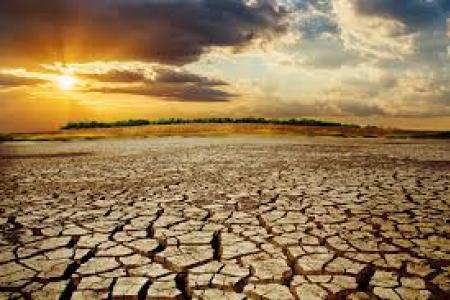What is GCCA+?
The Intra African, Caribbean and Pacific (ACP) Global Climate Change Alliance Plus (GCCA+) is a programme funded by the European Union to increase the capabilities of Southern African Development Community (SADC) Member States and countries in the ACP region to mitigate and adapt to the effects of climate change, and have their voices better heard in international climate change negotiations.
GCCA+ is necessary for the SADC Region which is highly vulnerable to the impacts of climate change and experiences natural hazards such as droughts, tropical cyclones and floods. It is aligned to SADC framework policies such as the Regional Agricultural Policy of 2014; the SADC Climate Change Strategy and Action Plan of 2015, and the SADC Regional Green Growth Strategy and Action Plan of 2015 which are all integral to contributing decisively to strengthening regional climate change adaptation and resilience to ensure sustainable economic growth.
The objective of the GCCA+ Programme is to strengthen the capacity of Member States to implement commitments taken under the Paris Agreement, mainstream climate adaptation and mitigation in national sector strategies and to access climate finance.
What are the GCCA+ Key Result Areas?
The GCCA+ is expected to result in strengthening SADC and SADC-affiliated regional organisations in support of climate negotiations and climate action; implementation of the Paris Agreement and pilot adaptation projects; strengthening SADC regional technical institutions and universities; and capacity building for mobilisation of climate finance.
The programme aims to support SADC governments, regional organisations, private and public sector, to deliver on the following areas:
- Strengthen the capacity of SADC Member States to undertake regional and national adaptation and mitigation actions in response to the challenges caused by the effects of global climate change and climate variability;
- Facilitate implementation of the provisions of the Paris Agreement on Climate Change in SADC;
- Facilitate sharing of knowledge and experience with other ACP regional organisations, including South-South Cooperation;
- Assist to design pilot projects on adaptation in several Member States; and
- Support universities and research centres from the SADC Region in the development of innovative solutions to climate change challenges.
How is the GCCA+ financed?
The GCCA+ Contribution Agreement was signed by SADC and EU on 24th June 2019, and is funded to the tune of €8 million, through the 11th European Development Fund, for a period of four years, with an implementation timeframe running up to June 2023.
When will GCCA+ become operational?
The GCCA+ is already operational, having been launched in Johannesburg, Republic of South Africa, on 6th November, 2019.
How will GCCA+ operate?
GCCA+ aims to support SADC Member States to mitigate and adapt to the effects of climate change, in support of the achievement of the revised Regional Indicative Strategic Development Plan (RISDP 2020-2030), Africa Agenda 2063 and Sustainable Development Goals (SDGs).
SADC regional organisations working on climate change issues, such as the Centre for Coordination of Agricultural Research and Development for Southern Africa (CCARDESA), SADC Centre for Renewable Energy and Energy Efficiency (SACREEE), Southern African Regional Universities Association (SARUA), and the Global Water Partnership Southern Africa (GWP SA), will also benefit from this Programme.
What actions will be supported under GCCA+?
SADC recognises the need to address the capacity of its Member States to develop and implement climate change adaptation strategies and for resilience building against the negative impacts associated with climate change. The effects of climate change, such as prolonged droughts, water scarcity and extreme weather patterns are already being felt in the Region. These are likely to have a negative impact on economic growth, agriculture production, food security, and poverty, bringing additional stresses especially among the most vulnerable communities.
Who is eligible for support under the GCCA+?
- CCARDESA
- Farmers
- Ministries of Agriculture
- SACREEE
- NREEEAPs
- NDE
- SADC MS
- Industry
- Rural Electrification Agencies
- NGOs
- Communities in SADC Region
- GWP-SA
- Trans-boundary River Basin Management Organisations
- Water utility management organisations
- Disaster Management organisations
- SADC Ministers responsible for Environment and Natural Resources
- African Group of Negotiators
- Committee of African Heads of State on Climate Change
- African Union Commission
- UNFCCC National Focal Points
- Media
- SADC Member States
- SADC Member States
- International Cooperating Partners
- SADC MS Citizens
- SARUA
- Youth/Students
- Researchers
- Partner Universities
- Ministries of Tertiary Education
- Research organisations
- Industry
- Development Partners
- International Cooperating Partners
Milestones of GCCA+
The Programme’s achievements to date include strengthening of science-based climate information in order to build resilience, manage risks and to mainstream climate information and early warning products and services into the climate sensitive socio-economic sectors, as well as enhancement of technical capacity of producers and users of climate change information.
GCCA+ has incorporated climate smart agriculture to strengthen capacity for COVID-19 response through improvement, availability and access to high value nutritious agricultural produce in food insecure communities impacted by COVID-19 using Climate Smart Agriculture technologies in Eswatini, Mozambique, Zambia and Zimbabwe.

